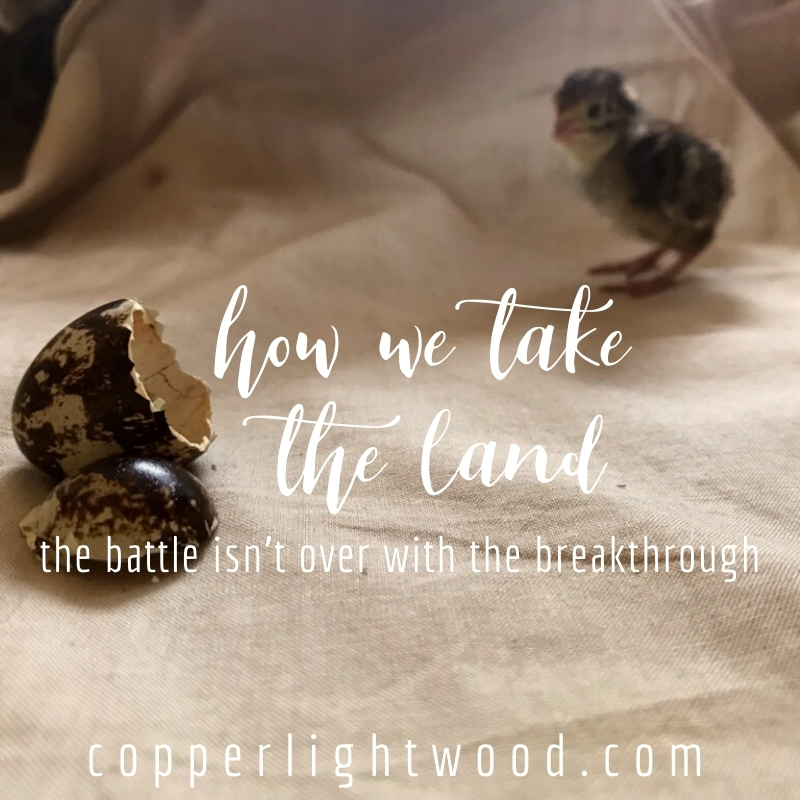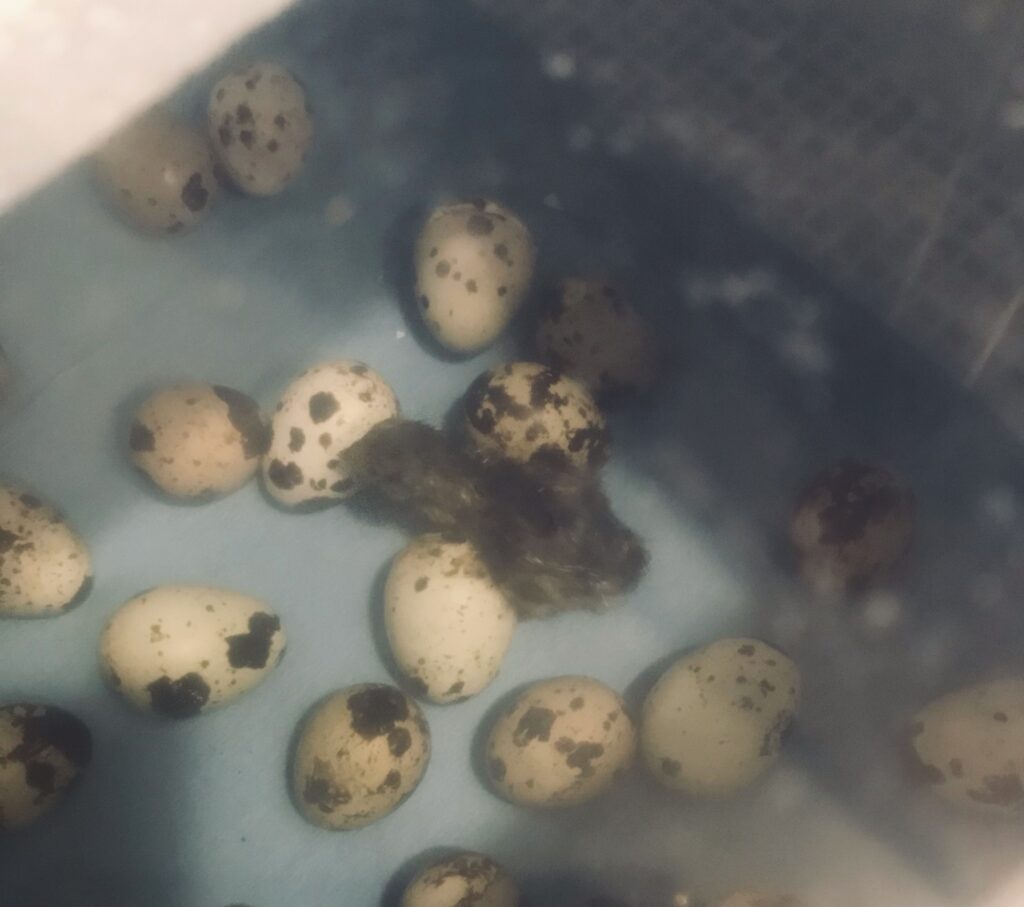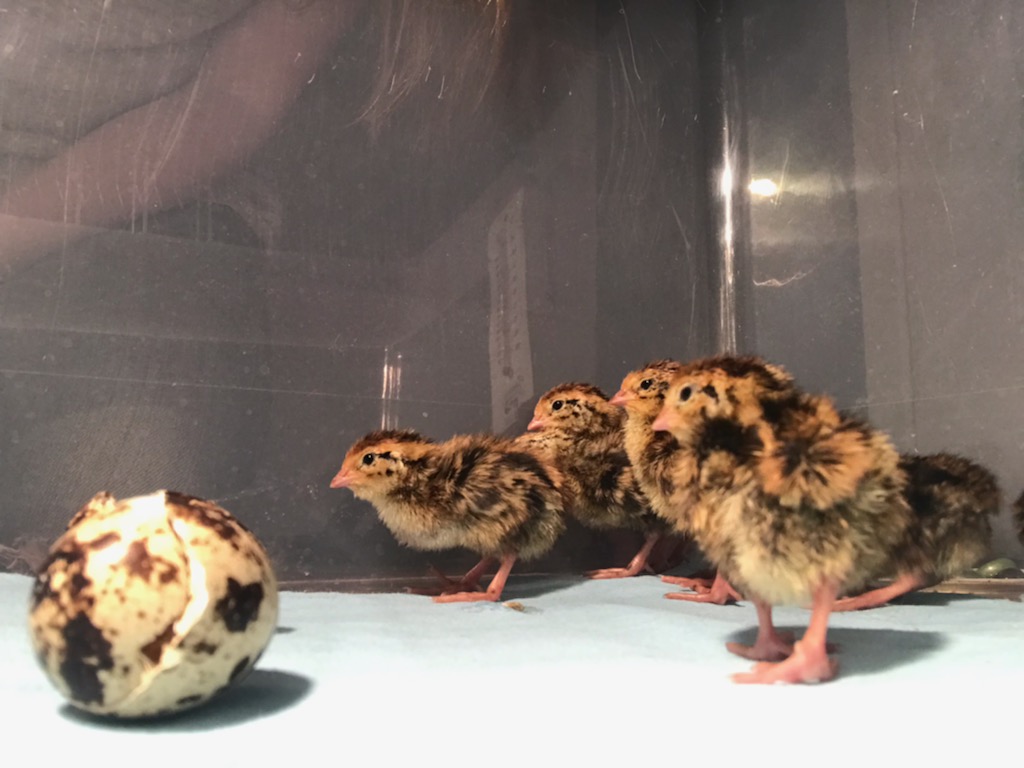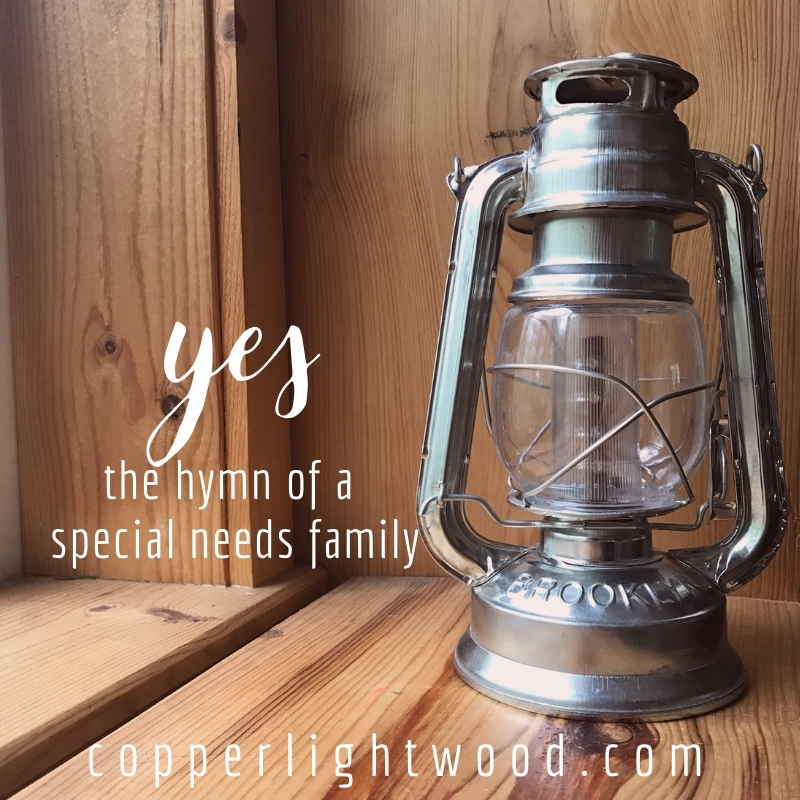I never rearrange furniture, but here we were doing it, moving shelves and purging drawers and hauling a chest up two flights of stairs.
Somewhere in the process of measuring to see if everything fit, I lost the tape measure. It wasn’t clipped to my pants, wasn’t on one of the shelves, wasn’t anywhere on the floor amid the piles of stuff everywhere. So I hollered upstairs to Finn.
“Did I leave the tape measure up there? On the counter? Maybe on the kitchen island?” I heard him rummaging while I sorted stacks of unused picture frames.
“Found it! It was in the drawer!” he yelled back down.

I walked back to the stairway thinking, In the drawer? I didn’t put it in the drawer… and as I came to the foot of the stairs, he approached the top of the stairs at the same time – and an image flashed through my mind of him throwing the heavy tape measure at me down the stairs. Because he’s six, and he might do something like that without thinking.
And then he did it.
His arm moved and the tape measure hurtled down the stairs at me, and I screamed.
And then I stopped screaming as it unrolled and flitted to my feet, harmless.
Here’s what happened: I was expecting the same tape measure I had lost – you know, the heavy, metal, retractable kind – but Finn had found the tape measure I use for knitting, which is just a long, plastic ribbon 60 inches long. And that’s what he threw at me.
Life has been throwing a lot at all of us lately, hasn’t it? We often don’t realize how on edge we are, just waiting for the next blow.
A couple weeks ago we finally had Reagan’s assessment. After it was done, I sat in an office with the psychologist (not the first one we miserably encountered; this one was terrific) and we debriefed on what had just happened.
We had sat through three hours of questions and exercises and tests, and Reagan had not even spelled her first name correctly. She answered the simplest of math questions wrong. When the doctor asked her how old she was, she said, “I twenty-seven,” and told him her birthday was in September. But she’s sixteen, and it’s not.
I was devastated. Ten years of parenting, homeschooling, trial and error, endless repetition, and this is what we had to show for it. All I could think was, What must this man think of our efforts as parents? It was Reagan’s assessment, but I felt like I had failed the test.
The doctor and I went over the results, her responses, her IQ, her behavior at home, the anxiety of testing, and the complications with all of her special needs. The whole time, I was bracing myself for judgment, condemnation, the pitying shake of the head, the professional condescension.
But none of that happened.
Instead, he said this:
“You and your husband have done an outstanding job with Reagan.” He paused. “The fact that she can read at all is remarkable.”
Aaaand that’s when I broke down sobbing. The weight lifted and relief flooded over me. The psychologist frantically searched for tissues, having no idea what to do with a crying woman across the desk. But he kept talking and he wasn’t just being nice; he went over all the challenges again and juxtaposed our efforts and Reagan’s abilities over them, and the result was stunning. I’m still not over it.
We often try to protect ourselves by expecting the worst. We brace for the blow because we’ve been hurt before, and we’d rather be prepared than be blindsided by calamity that comes out of nowhere.
But what about the good things that come out of nowhere, too? What if instead of the crash you expect, the Lord has prepared a soft landing?
A friend of mine said this a few weeks ago: Have you ever braced for a hard impact only to end up getting a soft nudge that barely upset your balance? It was like that. I saw the redirection coming and I expected it would bring me to my knees, but in minutes, I could already see His plan was better than mine.
I haven’t been able to get it out of my mind since. We white-knuckle our way through these crazy days, expecting disappointment and catastrophe, resigned to the worst. But this is not the way of the Lord, and this is not what Godly surrender is.
For I consider that the sufferings of this present time are not worth comparing with the glory that is to be revealed to us.
– Romans 8:18
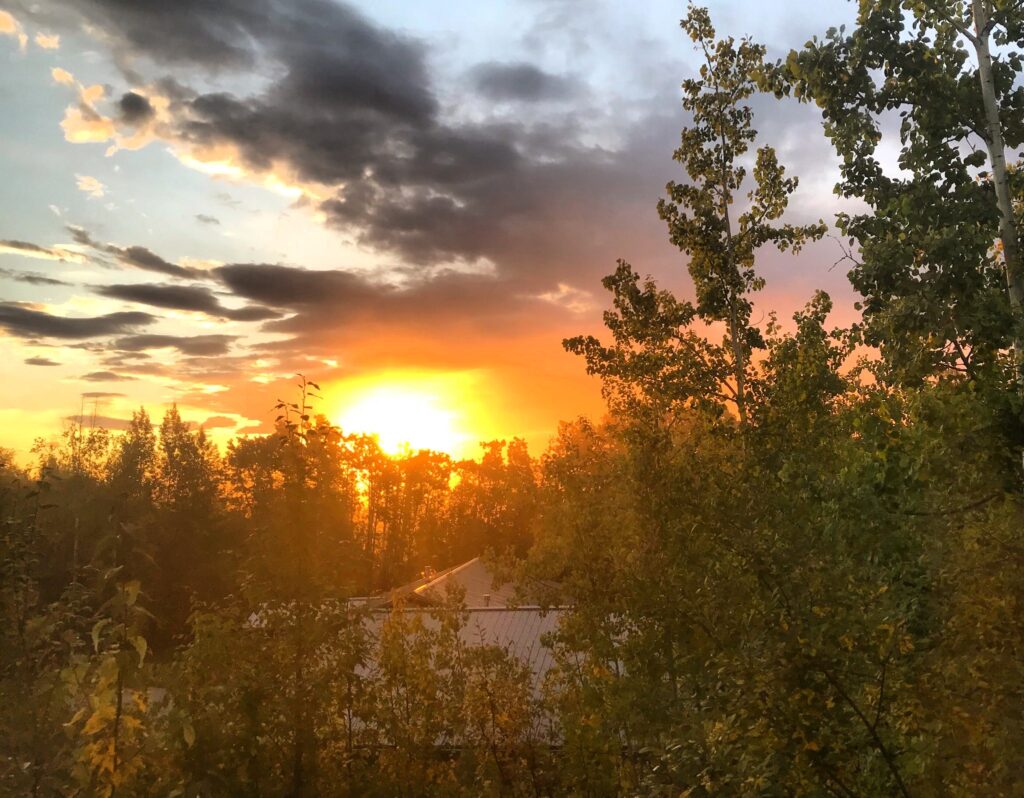
This brings me to a word I learned recently, so here you go:
Eucatastrophe: the sudden, unexpected, joyous turn of events.
J.R.R. Tolkien coined the term, but the eucatastrophe is all God’s doing. And this, friends, is where we’re supposed to live. Our fear can give permission to the enemy for what we dread, but our trust and expectation make way for the breakthrough.
No unbelief made him waver concerning the promise of God, but he grew strong in his faith as he gave glory to God, fully convinced that God was able to do what he had promised. That is why his faith was “counted to him as righteousness.”
– Romans 4:20-22
Often, we have perfectly good reasons to brace for impact because we’ve seen how things play out. But we’ll have more peace in the preparation if we recognize that we serve the God of the eucatastrophe – the one who stills the storm, breaks bread for the multitude, and causes recklessly thrown projectiles to flutter harmlessly to our feet.
It is the story of Mephibosheth, the crippled grandson of a previous king who was called into the presence of King David. Mephibosheth had no reason to expect anything but slaughter for himself and his family; it was typical then to completely eliminate the previous regime’s offspring. He knew he’d been living on borrowed time, and it looked like that time was up.
He had no idea that God was already moving on his behalf, that the eucatastrophe was already in motion. He could never have imagined that King David was looking for a remnant in his family line not for the sake of hunting them down, but for the sake of showing kindness to them out of love for his old friend, his best friend…Mephibosheth’s father Jonathan, who died years earlier.
And Mephibosheth the son of Jonathan, son of Saul, came to David and fell on his face and paid homage. And David said, “Mephibosheth!” And he answered, “Behold, I am your servant.” And David said to him, “Do not fear, for I will show you kindness for the sake of your father Jonathan, and I will restore to you all the land of Saul your father, and you shall eat at my table always.”
– 2 Samuel 9:6-7
We keep expecting more situations like what we’ve already lost. But loss is not what God gives us when we turn to Him. Our losses are not compounding; they are recompensing.
Be glad, O children of Zion,
and rejoice in the Lord your God,
for he has given the early rain for your vindication;
he has poured down for you abundant rain,
the early and the latter rain, as before.
The threshing floors shall be full of grain;
the vats shall overflow with wine and oil.
I will restore to you the years
that the swarming locust has eaten.
– Joel 2:23-25a
I had a dream recently that Vince had been emailing back and forth with someone about a history course he offers. The man’s name was Bao Leng, and when he purchased the course, Vin said, “Bao Leng came through!” In my dream, I immediately heard the Lord say, Look up the meaning of that name. So I tried to do it, but as often happens in dreams, things didn’t work – I tried typing letters into my phone but they wouldn’t enter correctly, the search engine was all messed up, and my laptop was just as useless.
But as soon as I woke up, I looked it up. And here’s what I saw:
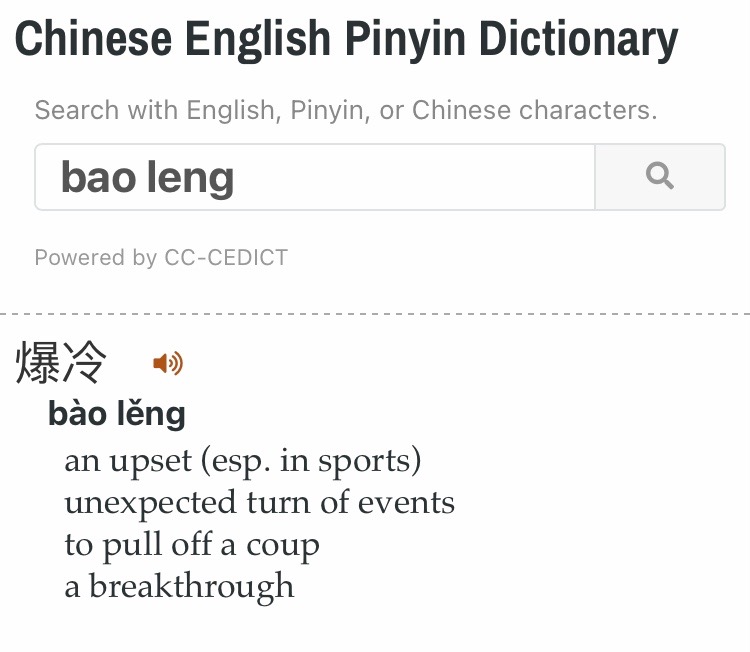
A breakthrough. Huh. Not like we haven’t been talking about that at all lately.
Okay, so now we have two new words in our vocabulary. Let me give you one more.
Respair: The return of hope after a period of despair.
And this is also where some of us are being called to. We were never meant to walk in fear, talking ourselves out of the big things He’s called us to instead of getting to experience the eucatastrophe of His grace on us.
She had been setting her teeth and clenching her fists for a terrible blast of lion’s breath; but the breath had really been so gentle that she had not even noticed the moment at which she left the earth.
– C.S. Lewis, The Silver Chair
Yes, situations are hard and the world right now is a circus on psychotropic drugs. But no, fear does not get to win the day. Fear doesn’t even get to take a backseat and come along for the ride. Fear needs to be shoved out the door while we’re hauling down the highway.
This is not the season to entertain fear. This is the season for eucatastrophe, for bao leng, for respair.
What if our “what ifs” have been all wrong?
What if some of the struggles we’ve accepted as just part of life were actually just part of a broken mindset? What if some things are meant to be easier, and not harder?
What if the things we’ve struggled over in time-consuming labor came effortlessly in comparison? What if the path was made flat, the boulders moved out of the way, and we could spend more time enjoying the view?
What if the Lord is still turning Sauls into Pauls? Because He is, and each person transformed changes the trajectory of our culture in this era.
What if instead of bracing for impact, we braced for breakthrough?
While we endure, God is working on our behalf in ways we would never imagine. So we trust Him with great expectation. That hope is not wishful thinking; it is the powerful currency that buys us time before the eucatastrophe.

